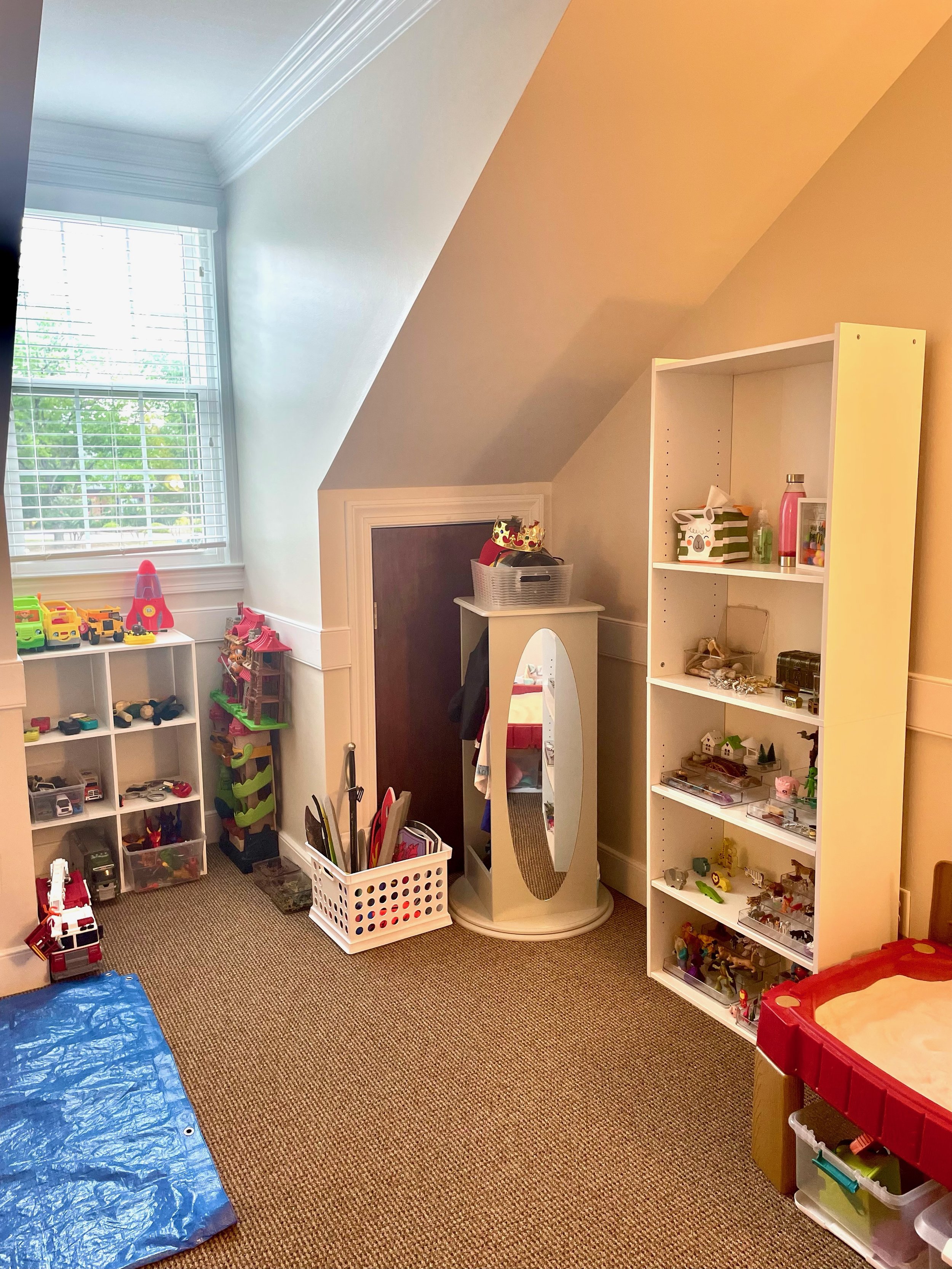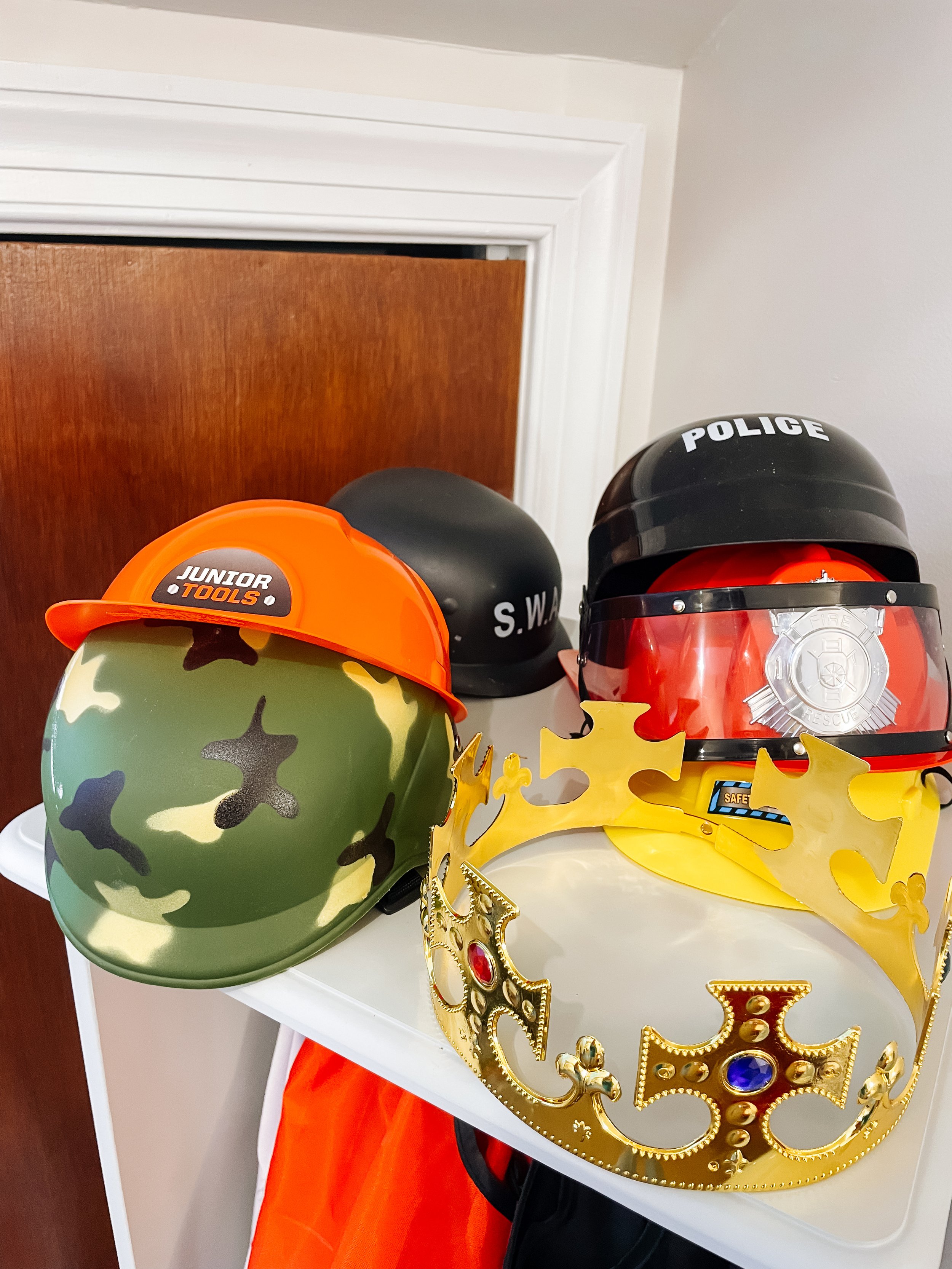
Play therapy for children with anxiety in Raleigh, north carolina
Where healing happens through play.
What is play therapy?
The Association for Play Therapy (APT) defines play therapy as:
"the systematic use of a theoretical model to establish an interpersonal process wherein trained play therapists use the therapeutic powers of play to help clients prevent or resolve psychosocial difficulties and achieve optimal growth and development."
Furthermore, play and expressive arts therapies allow children to identify, explore, and express their emotions/needs in a way that is most developmentally appropriate for them. Play and expressive arts therapies are typically utilized with children ages 3-12 years, but can be used with any client throughout their counseling experience.
You can learn more about play therapy here
Play Therapy can help address:
Symptoms associated with topics such as (but not limited to):
Grief and Loss
Trauma/Crisis
Anxiety
Depression
School Refusal
Adjustment Issues
Divorce/Separation
Bullying
Physical and Sexual Abuse
Aggression/Anger
ADHD and Autism Spectrum Disorders
“Birds fly, fish swim, and children play.”
- Dr. Garry L. Landreth, Play Therapy: The Art of the Relationship
This video introduces and promotes the value of play, play therapy, credentialed play therapists, and membership in the Association for Play Therapy.
What we’ll work on
Play-based therapy supports children with:
Learning and implementing new and creative solutions to problems
Increasing communication skills and social skills
Exploring creativity and imagination
Increasing self-confidence and empathy for self and others
Increasing their ability to identify and explore their emotions through experiential play
and more!
This video explores the ways that play therapy helps children process their experiences and develop more effective strategies for managing their world.
FAQS
What others have wondered about Child-Centered Play Therapy
-
I will meet with your child one-on-one in a playroom stocked with many types of supplied and toys. Your child will be able to play with all of the toys in most of the ways that they would like to. At times, parts of the play may involve loud noises, thumps, or bangs (please do not worry about those and understand that that is part of the process of working through experiences in the playroom).
-
Yes! The majority of our play sessions are based in foundations from Synergetic Play Therapy, which is a fancy way of saying "nervous system co-regulation". Although I may not see certain behaviors that you do outside of the play sessions, we can discuss topics such as themes of play, your child's ability to work through big feelings, and helpful ways that we can work together as a team to provide support to your child.
-
You can speak with Hannah directly to find a way to explain play therapy to your child that feels right for you, but one example could be: "I met a lady named Hannah and she does this really cool thing where she creates special time for kids to play because kids need their own time to play to feel the best way that they can. She knows how to play with kids. When things feel hard she even knows how to play to help kids feel better. She loves kids and to play with kids and I just thought it would be amazing if you had your own time to play and full attention because you're worth it."
-
1. Contact me directly to schedule a free 10-15 minute phone call or book online (link to book is on the contact page).
2. After we speak and both feel we would be a good fit for another I will schedule a 60 minute intake appointment with yourself and any other parents involved (without your teen present) to discuss presenting concerns, the process of therapy, etc.
3. After the initial session, we will schedule your child's first session and I will meet with you throughout the treatment process to discuss your child's progress towards therapeutic goals.
More questions? Check out my FAQs page.



